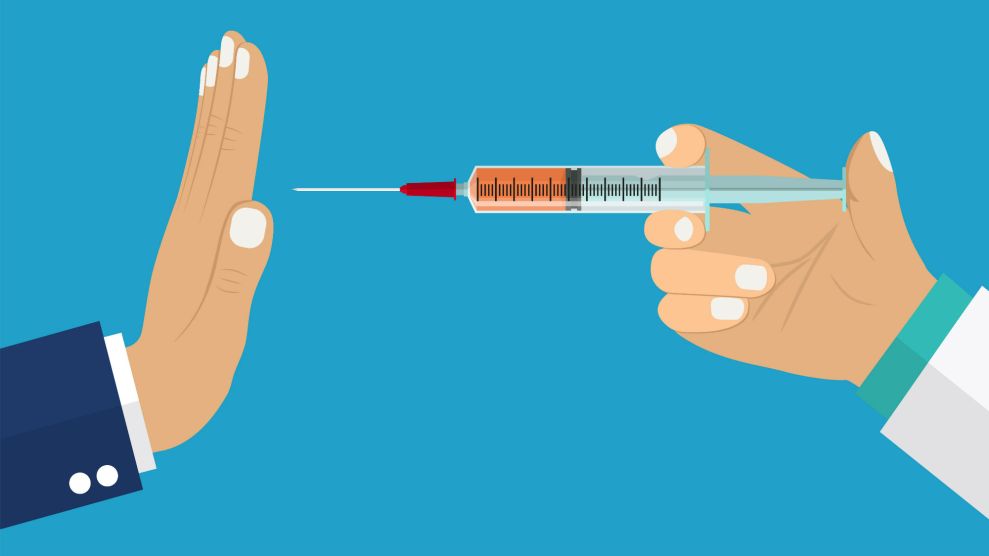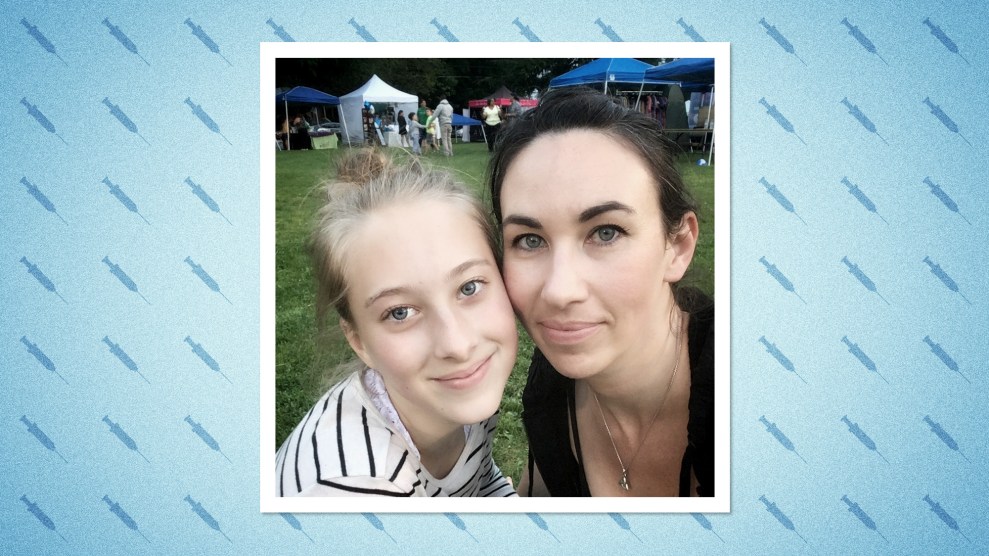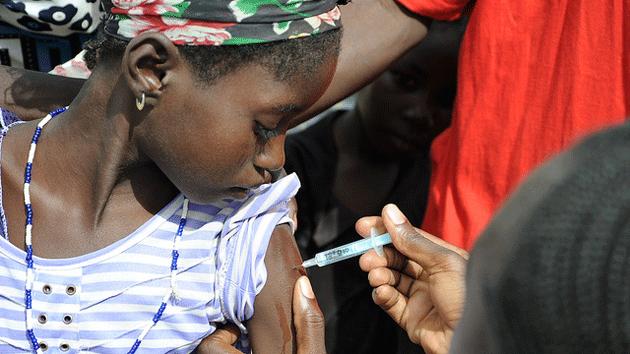
Wavebreakmedia/iStock/Getty
As the United States faces a record number of measles cases, Mother Jones wants to hear from you: Have you ever successfully convinced someone in your community to get vaccinated, or changed their mind about vaccines? What was your experience, and how did the person respond to you? Perhaps you’re a concerned parent or community advocate, or you work in public health. We’re interested in understanding how you approached the conversation and what worked.
According to the Centers for Disease Control and Prevention, more than 70 percent of measles cases this year were a result of people being unvaccinated. Outbreaks in smaller, tight-knit communities made up the majority of cases, but at least 22 states also reported cases. While it’s hard to determine how many people do not believe in vaccines—and it’s important to stress that the majority of Americans are vaccinated—experts say parents may refuse vaccines for several reasons: They may worry that vaccines cause autism (a theory that has been thoroughly debunked), that vaccines aren’t safe, or that pharmaceutical companies can’t be trusted. Though some people may believe vaccines are outright dangerous, others may be more hesitant or unsure of vaccines, causing them to delay getting immunizations.
Research has shown that merely trying to counter someone’s deeply held beliefs with facts doesn’t really work—and can even backfire. Other studies have argued that showing the drastic effects of not getting vaccinated can be effective. Compassion and thoughtful listening can also help: Voices for Vaccines, a pro-vaccine advocacy group led by parents, released a toolkit for speaking to family members. It emphasizes “keeping the conversation friendly, open, and respectful.” The American Academy of Pediatrics also recommends that pediatricians speak to parents compassionately, and that taking the time to address parents’ concerns and provide accurate information can be one of the most important factors for encouraging vaccine acceptance.
We want to hear what worked for you. If you’ve ever been able to change someone’s mind on vaccines, tell us your story. Fill out the form below, email talk@motherjones.com, or leave us a voicemail at (510) 519-MOJO.







